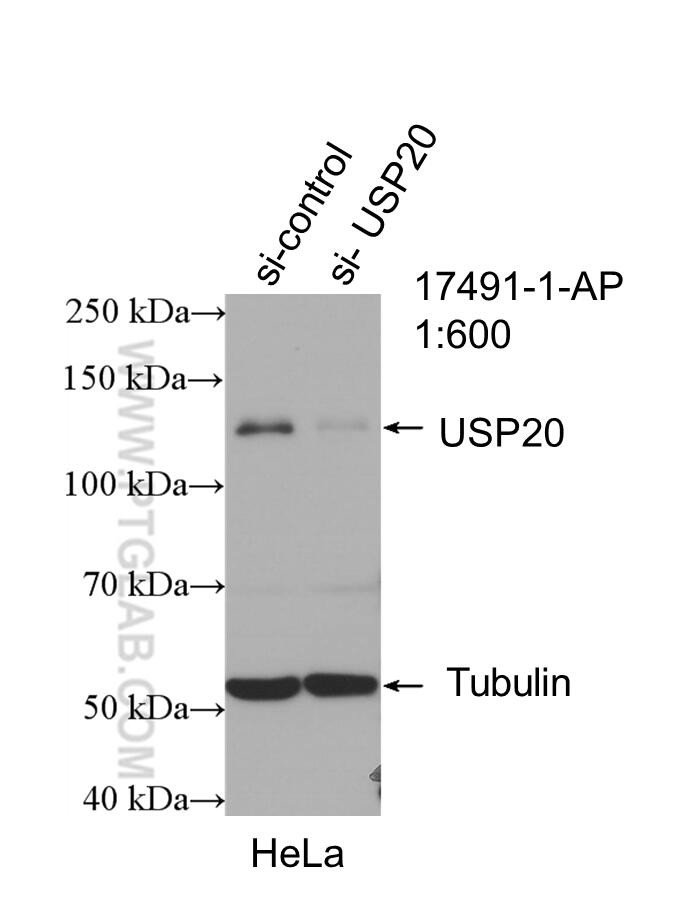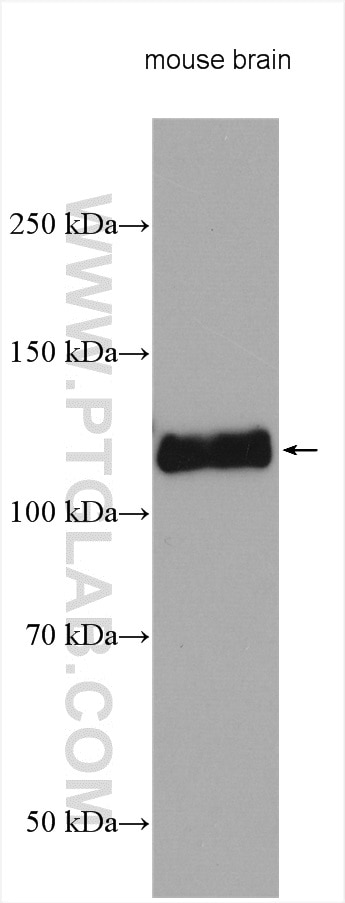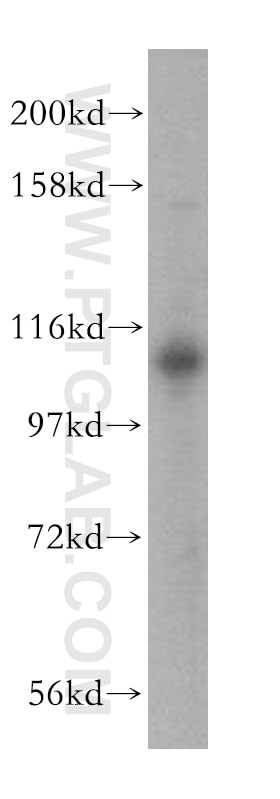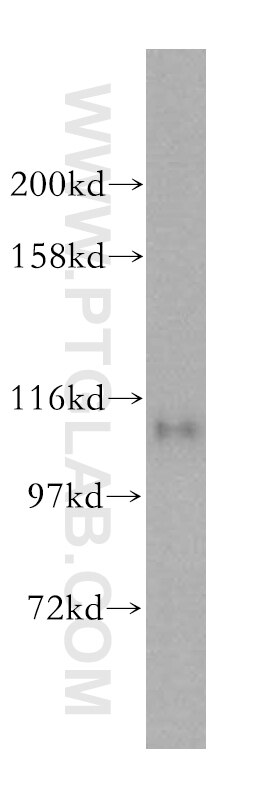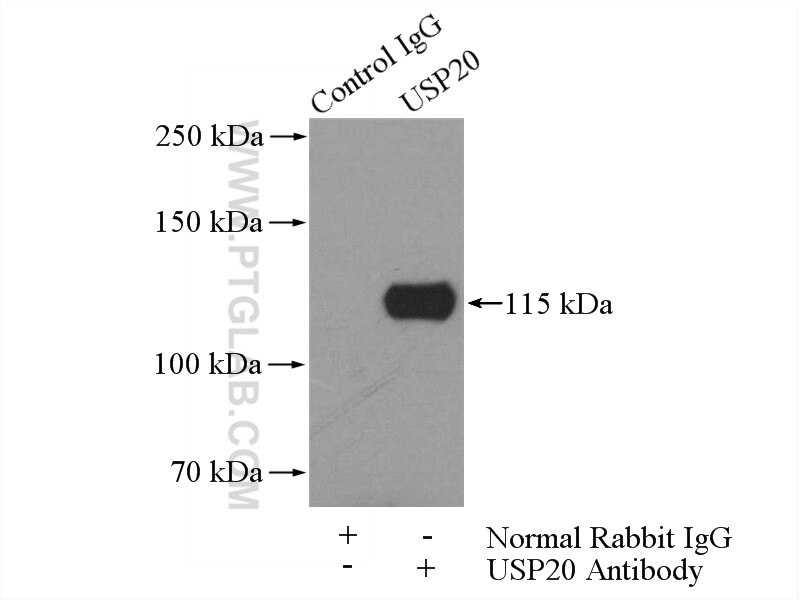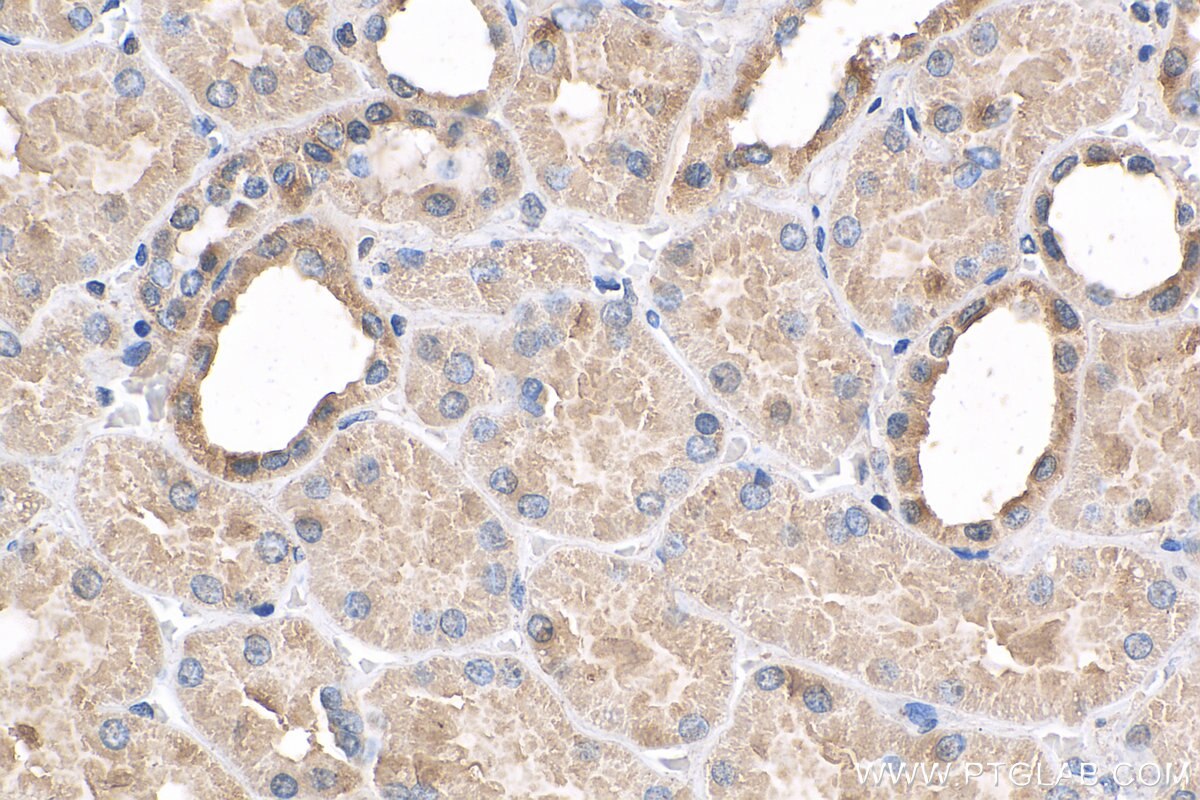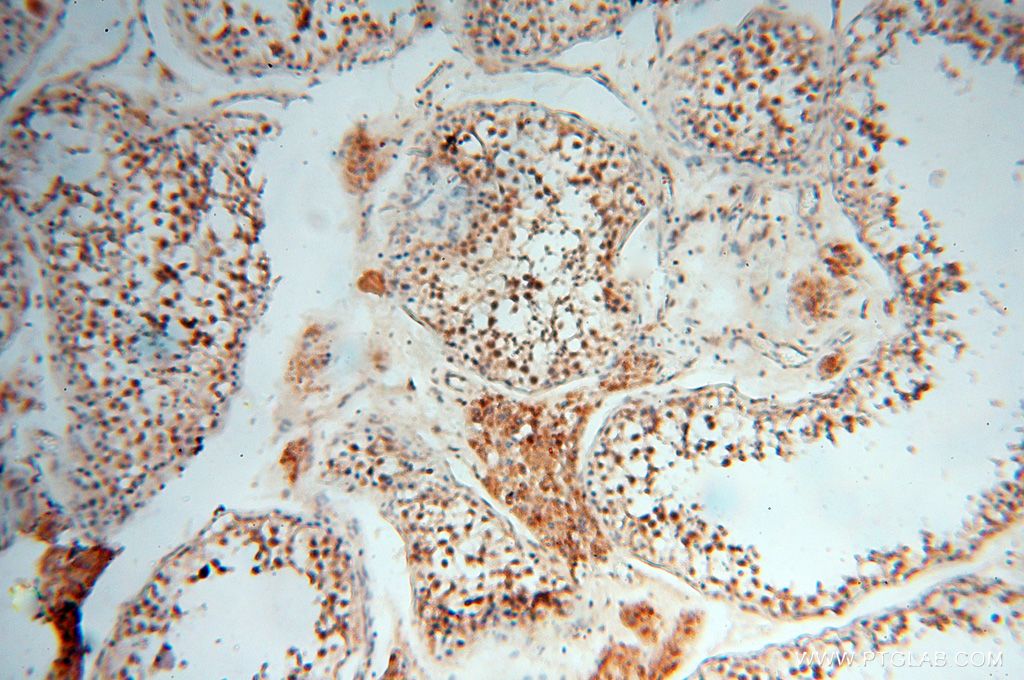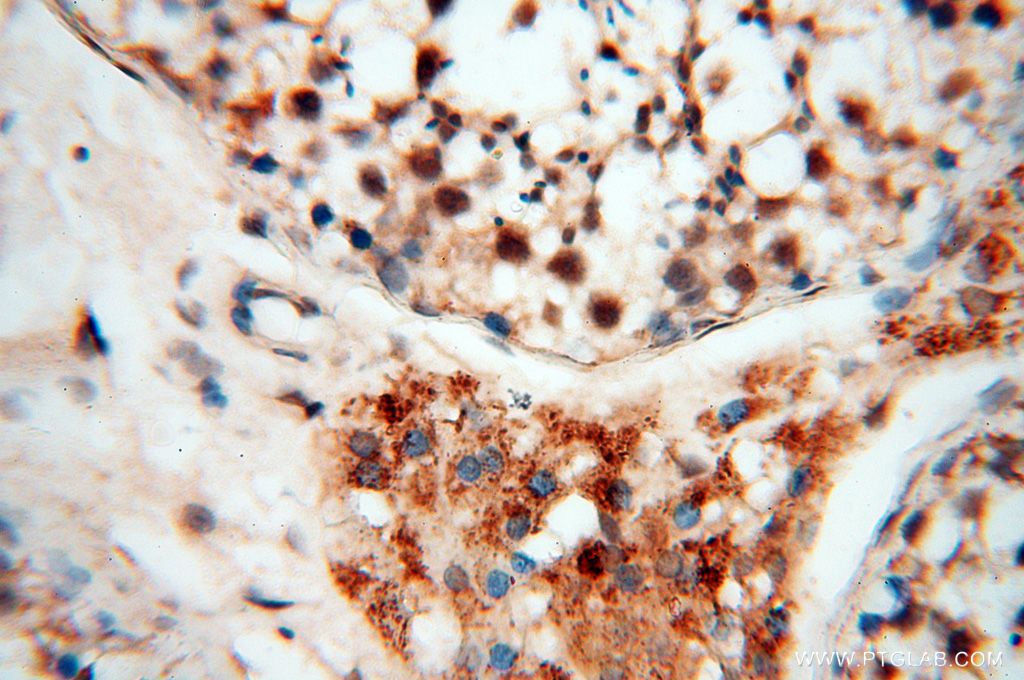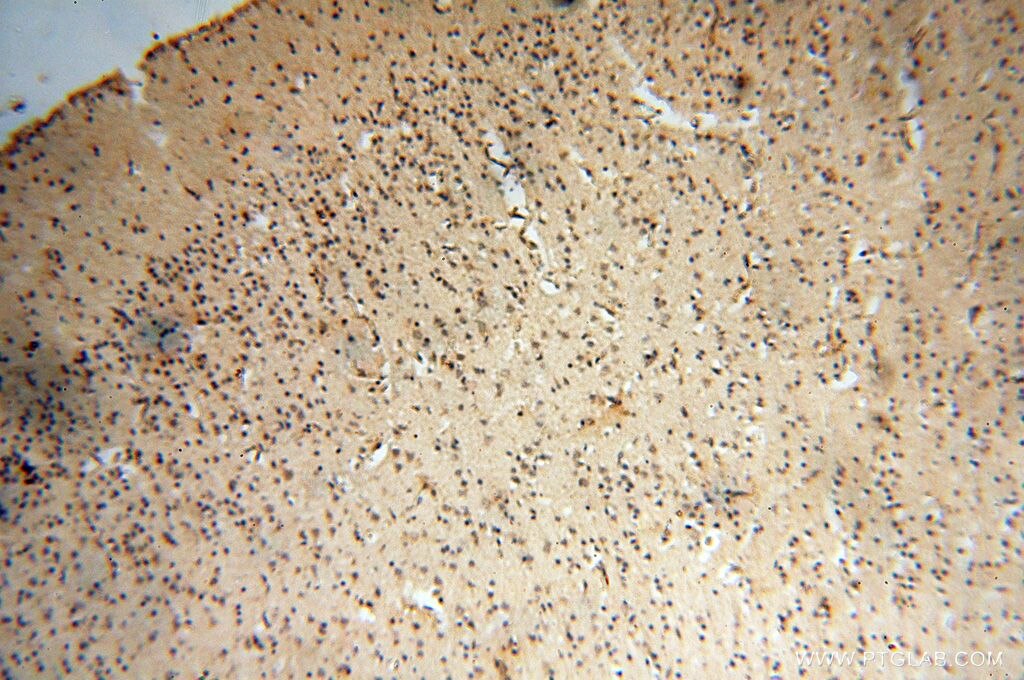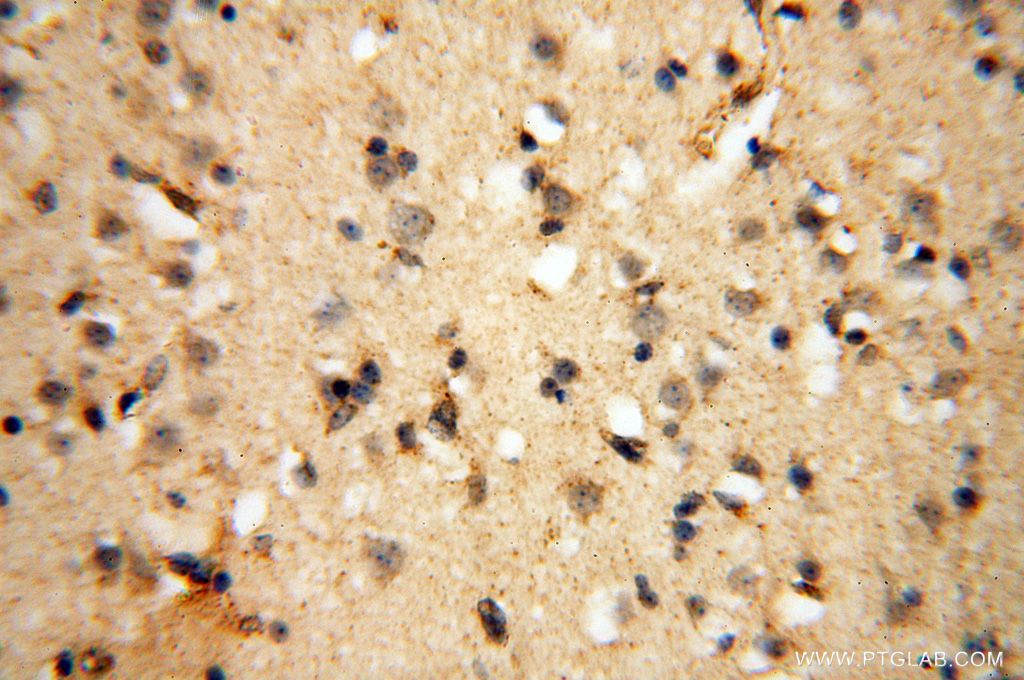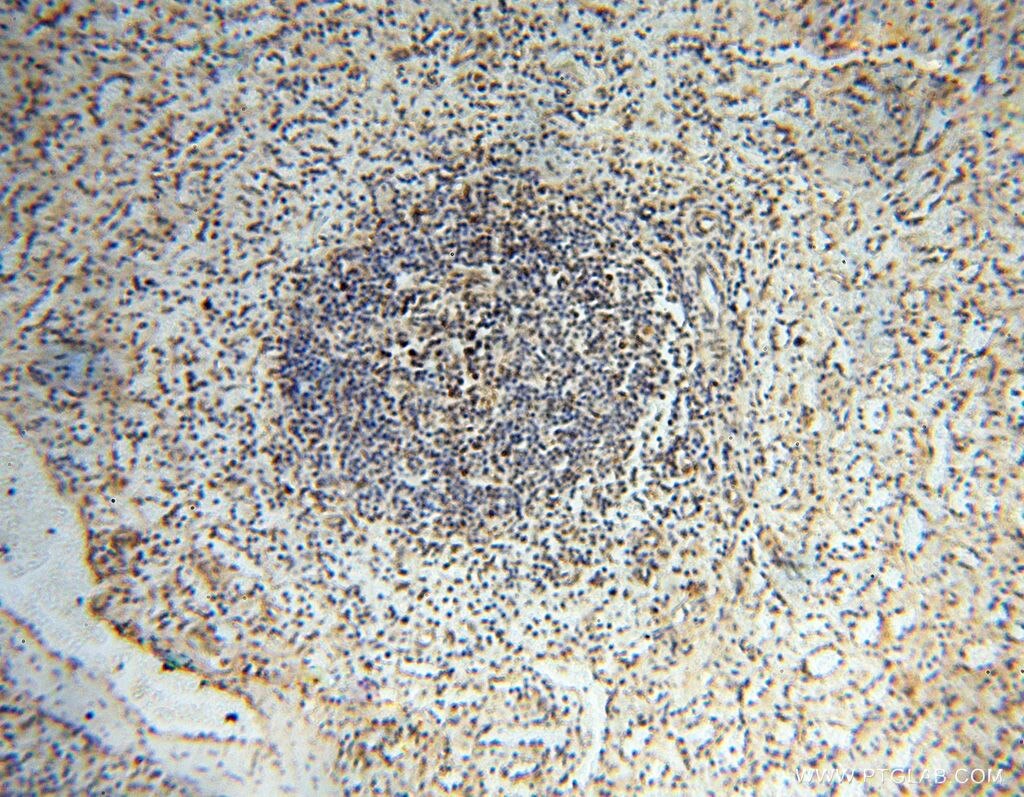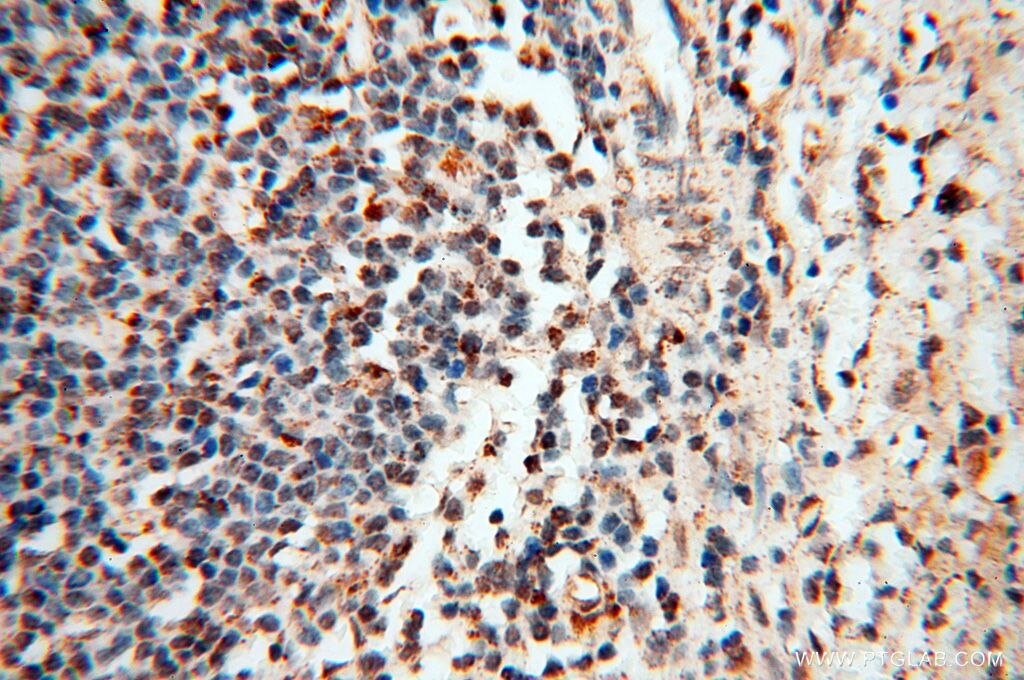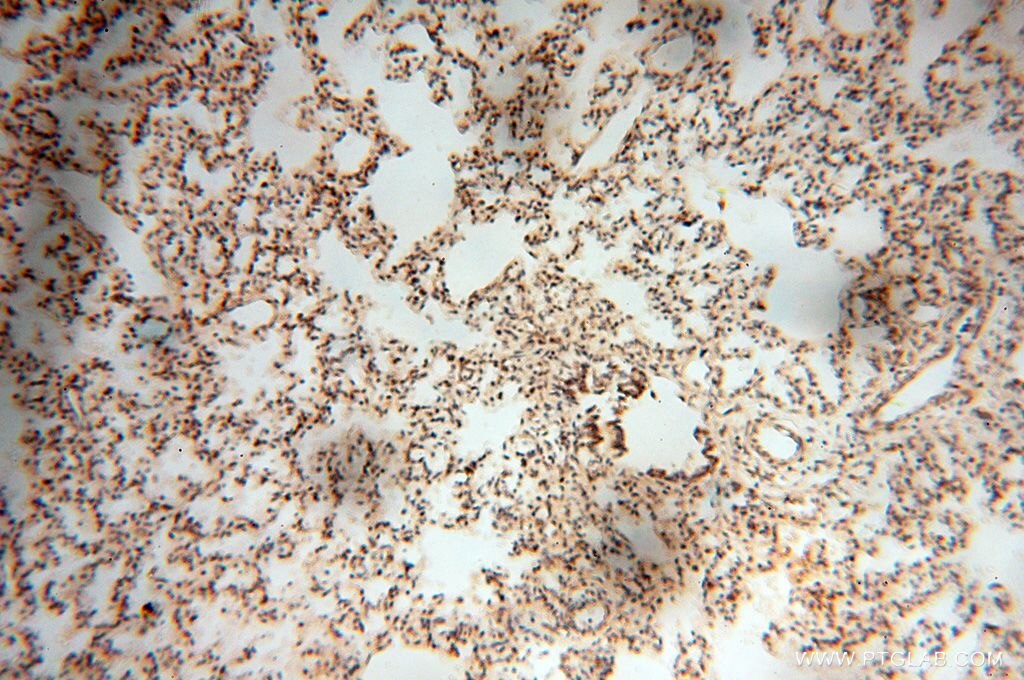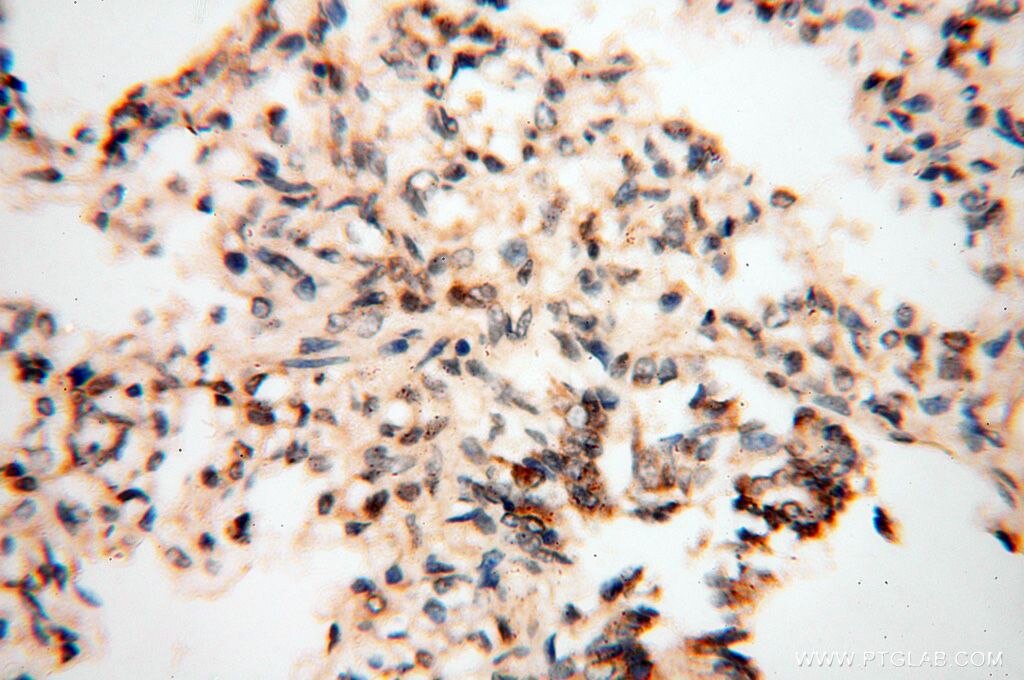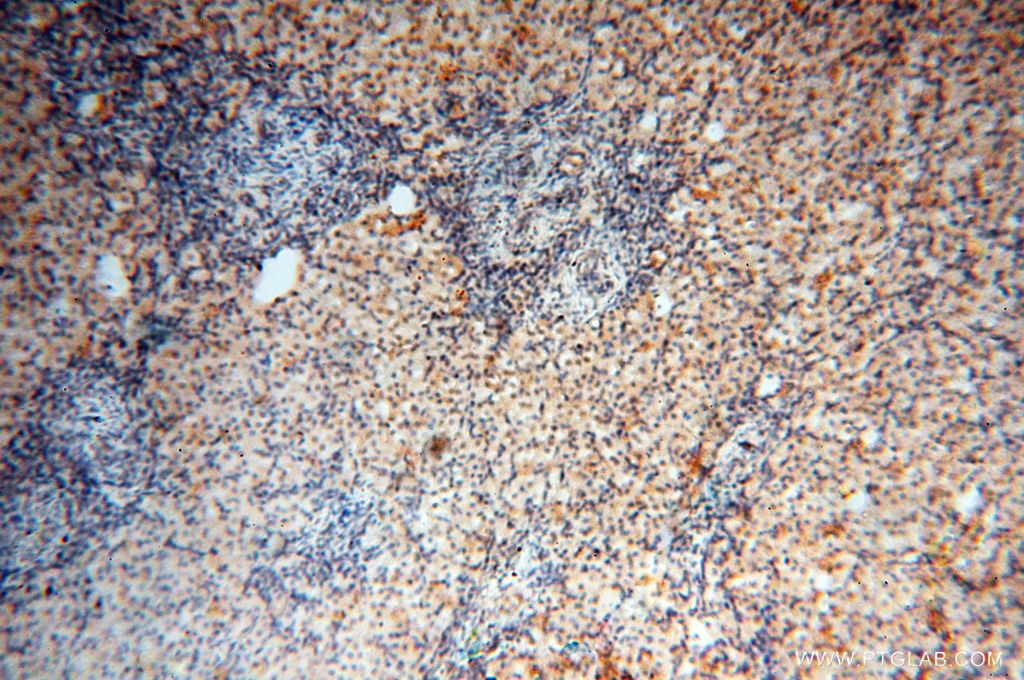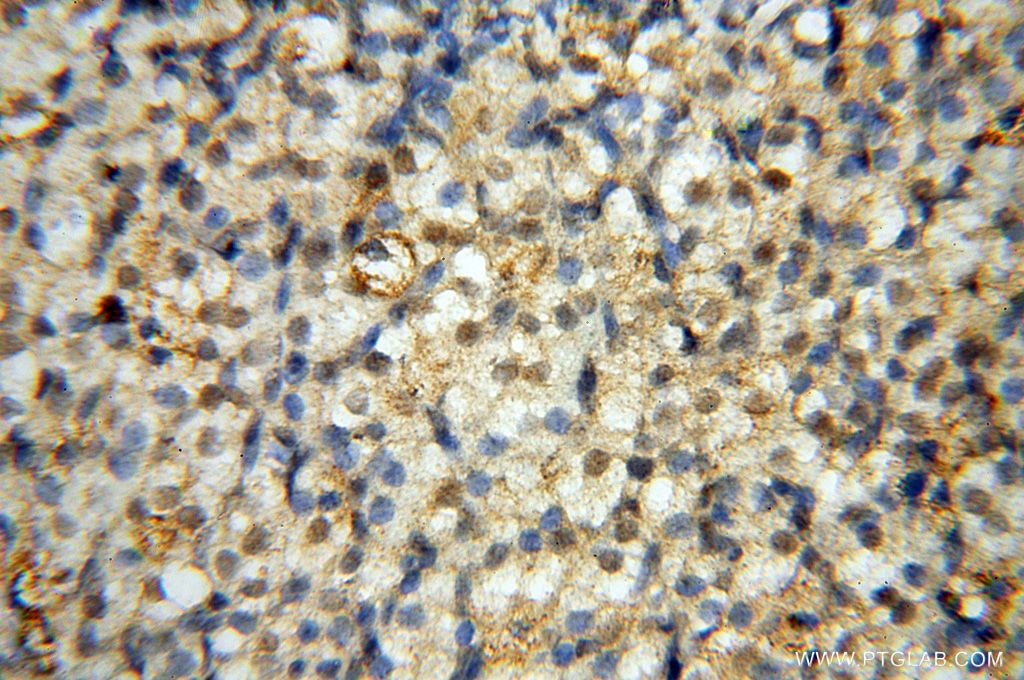- Phare
- Validé par KD/KO
Anticorps Polyclonal de lapin anti-USP20
USP20 Polyclonal Antibody for WB, IHC, IP, ELISA
Hôte / Isotype
Lapin / IgG
Réactivité testée
Humain, rat, souris
Applications
WB, IHC, IF, IP, ELISA
Conjugaison
Non conjugué
N° de cat : 17491-1-AP
Synonymes
Galerie de données de validation
Applications testées
| Résultats positifs en WB | tissu cérébral de souris, cellules HeLa, cellules HepG2 |
| Résultats positifs en IP | cellules HeLa |
| Résultats positifs en IHC | tissu rénal humain, tissu cérébral humain, tissu ovarien humain, tissu pulmonaire humain, tissu splénique humain, tissu testiculaire humain il est suggéré de démasquer l'antigène avec un tampon de TE buffer pH 9.0; (*) À défaut, 'le démasquage de l'antigène peut être 'effectué avec un tampon citrate pH 6,0. |
Dilution recommandée
| Application | Dilution |
|---|---|
| Western Blot (WB) | WB : 1:500-1:1000 |
| Immunoprécipitation (IP) | IP : 0.5-4.0 ug for 1.0-3.0 mg of total protein lysate |
| Immunohistochimie (IHC) | IHC : 1:50-1:500 |
| It is recommended that this reagent should be titrated in each testing system to obtain optimal results. | |
| Sample-dependent, check data in validation data gallery | |
Applications publiées
| KD/KO | See 8 publications below |
| WB | See 16 publications below |
| IHC | See 7 publications below |
| IF | See 3 publications below |
| IP | See 4 publications below |
Informations sur le produit
17491-1-AP cible USP20 dans les applications de WB, IHC, IF, IP, ELISA et montre une réactivité avec des échantillons Humain, rat, souris
| Réactivité | Humain, rat, souris |
| Réactivité citée | rat, Humain, souris |
| Hôte / Isotype | Lapin / IgG |
| Clonalité | Polyclonal |
| Type | Anticorps |
| Immunogène | USP20 Protéine recombinante Ag11590 |
| Nom complet | ubiquitin specific peptidase 20 |
| Masse moléculaire calculée | 914 aa, 102 kDa |
| Poids moléculaire observé | 110-120 kDa |
| Numéro d’acquisition GenBank | BC039593 |
| Symbole du gène | USP20 |
| Identification du gène (NCBI) | 10868 |
| Conjugaison | Non conjugué |
| Forme | Liquide |
| Méthode de purification | Purification par affinité contre l'antigène |
| Tampon de stockage | PBS with 0.02% sodium azide and 50% glycerol |
| Conditions de stockage | Stocker à -20°C. Stable pendant un an après l'expédition. L'aliquotage n'est pas nécessaire pour le stockage à -20oC Les 20ul contiennent 0,1% de BSA. |
Informations générales
USP20(ubiquitin carboxyl-terminal hydrolase 20) is also named as KIAA1003, LSFR3A, VDU2 and belongs to the peptidase C19 family and the USP20/USP33 subfamily. It can specifically deubiquitinate and stabilize HIF1A and, therefore, increase expression of HIF-1alpha targeted genes, such as vascular endothelial growth factor (VEGF). It also plays a central role in ADRB2 recycling and resensitization after prolonged agonist stimulation by constitutively binding ADRB2, mediating deubiquitination of ADRB2 and inhibiting lysosomal trafficking of ADRB2.
Protocole
| Product Specific Protocols | |
|---|---|
| WB protocol for USP20 antibody 17491-1-AP | Download protocol |
| IHC protocol for USP20 antibody 17491-1-AP | Download protocol |
| IP protocol for USP20 antibody 17491-1-AP | Download protocol |
| Standard Protocols | |
|---|---|
| Click here to view our Standard Protocols |
Publications
| Species | Application | Title |
|---|---|---|
Genes Dev Deubiquitinase USP20 promotes breast cancer metastasis by stabilizing SNAI2.
| ||
J Cell Biol Deubiquitinases USP20/33 promote the biogenesis of tail-anchored membrane proteins. | ||
Cell Death Differ USP20 positively regulates tumorigenesis and chemoresistance through β-catenin stabilization.
| ||
Diabetes Hepatokine ERAP1 Disturbs Skeletal Muscle Insulin Sensitivity via Inhibiting USP33-Mediated ADRB2 Deubiquitination. | ||
Front Oncol USP20 is a predictor of poor prognosis in colorectal cancer and associated with lymph node metastasis, immune infiltration and chemotherapy resistance
| ||
Mol Ther Oncolytics USP18 and USP20 restrict oHSV-1 replication in resistant human oral squamous carcinoma cell line SCC9 and affect the viability of SCC9 cells.
|
